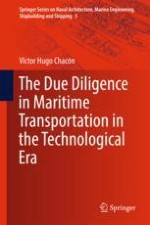This book discusses the problem of sea carriers’ liability, with a particular focus on role of the technologies that have been employed to support maritime transport in recent decades. It examines the Hague Rules, providing an overview of the precedent standard of liability, its historical development up until its application, and its construction at the current time. To do so, it presents two exemplary studies from English and American case law, and analyzes the situations in which the courts have required the application of new technologies as part of the duties set in the current governing liability regime. Written in an easy-to-follow style, the book offers not only an unique overview of the applications of technologies in making ships both seaworthy and cargo-worthy, but also a practice-oriented guide to understanding and making decisions about sea carriers’ liability. It is intended for law practitioners as well as advanced graduate students and researchers in the field of maritime shipping, transport and insurance law
